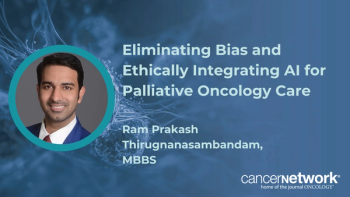
Endometrial Cancer Patients Not Offered Genetic Counseling Referrals
According to a study recently presented at the 2017 American Society of Clinical Oncology Annual Meeting, held June 2–6 in Chicago, women diagnosed with endometrial cancer are oftentimes not provided with genetic counseling referrals.
According to a study recently presented (abstract
Many clinicians are familiar with
Researchers addressed the relevance of genetic testing in certain populations of women diagnosed with endometrial cancer. Their aim was to gain a better understanding of genetic counseling referrals and genetic testing rates in this population.
Between 2012 and 2015, they identified women diagnosed with endometrial cancer (n = 447) and evaluated their risk factors. These included age, body mass index (BMI), family history of two or more Lynch-related cancer family members, and tumor MMR protein expression loss. Of the 447 women identified, gynecologic oncologists referred 107 women (24%) of these women based on their own discretion and included women who were younger and with a lower BMI. Of these referrals, 71 women (66%) went on to receive testing and eight women (11%) were found to have a germline mutation in one of the MMR genes.
Researchers are recommending that high-risk women with endometrial cancer receive genetic counseling referrals and testing to identify women at a higher than average risk for a germline mutation. The goal of capturing these Lynch-positive women is to adequately screen for other cancers in which they are also at risk for developing. Additionally, appropriate family member testing may also be recommended.
Newsletter
Stay up to date on recent advances in the multidisciplinary approach to cancer.











































